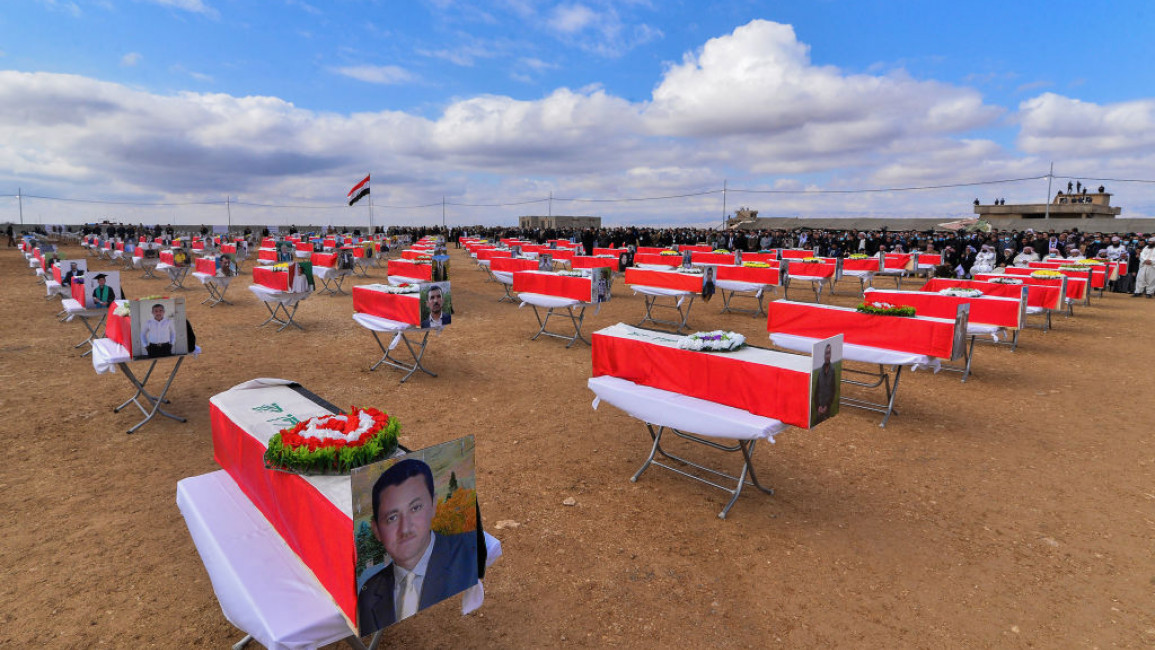Yazidi victims of IS genocide in Iraq buried in ceremony
Yazidis in Kocho, northwestern Iraq, buried 41 victims of the Islamic State group's genocide in a ceremony on Thursday.
Genocide survivor and Kocho native Nadia Murad said Thursday that 26 men and 15 women were buried in the ceremony.
The victims were killed in Kocho, a village in the Yazidi heartland of Sinjar, during IS' slaughter in the area in 2014, Yazidi NGO Yazda said on Wednesday.
IS ripped through parts of Syria and Iraq in the summer of 2014. Yazidis were a particular target of the extremist group because of their non-Islamic faith. Thousands of Yazidis were rounded up, killed, and buried in mass graves.
Since IS was territorially defeated in December 2017, the UN, Yazidi groups, branches of the Iraqi and Iraqi Kurdish governments, and others have worked to find mass graves, exhume and identify bodies, and re-bury them.
The process has been hampered by the Covid-19 pandemic and the unstable security situation in the Sinjar area.
More than 17 mass graves have been discovered so far. The first burial ceremony took place in February of this year when 104 Yazidis were buried in Kocho.
|
Yazidi activists have said that the exhumation and burial process has been too slow, prolonging the pain of those who have lost family and friends.
"My heart is with all families who will finally be able to honor their loved ones," genocide survivor and Kocho native Nadia Murad said of the burial.
"Yet, thousands of families still wait to bury relatives, which is why we must push for expedited exhumations."
Several of Murad's murdered relatives were buried in February's ceremony.
More than seven years since the genocide began, about 2,700 Yazidis are still missing. Much of Sinjar still lies in ruin.
In a landmark case, an Iraqi IS member was jailed for life in Germany last month after being found guilty of genocide.



